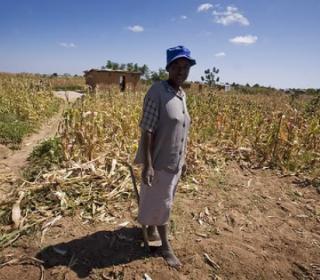Debating South Africa's Land Policies
Writing at the Council on Foreign Relations’ “Africa in Transition” blog, John Campbell notes that South Africa’s land “issue” is not so simple. How true. Back in 1994 the ANC pledged to transfer ownership and control of 30% of white-owned farmlands to black South Africans by 2014. The process, based on a “willing buyer/willing seller” model has been halting at best and too often communities and farmers that did benefit from a redistribution of land lacked the background or capital to develop sustainable commercial entities.



